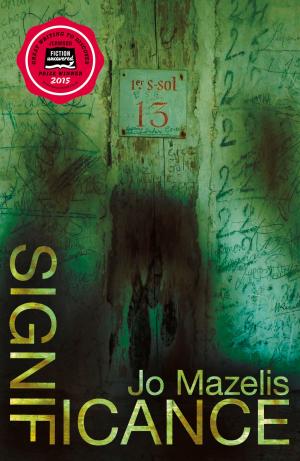The Girl Who Lived on Air
The Mystery of Sarah Jacob: The Welsh Fasting Girl
Nonfiction, Health & Well Being, Health, Ailments & Diseases, Social & Cultural Studies, True Crime| Author: | Stephen Wade | ISBN: | 9781781720707 |
| Publisher: | Seren | Publication: | July 1, 2014 |
| Imprint: | Seren | Language: | English |
| Author: | Stephen Wade |
| ISBN: | 9781781720707 |
| Publisher: | Seren |
| Publication: | July 1, 2014 |
| Imprint: | Seren |
| Language: | English |
Though not the first anorexic, Sarah Jacob, “the Welsh fasting girl,” was arguably the first to cause a national uproar when she dominated the press in 1869, becoming something of a celebrity. Despite a team of nurses from Guy’s Hospital stationed at her home in Lletherneuadd, Sarah died, and the best minds in British medicine theorized about the cause of her apparently supernatural existence: living in spite of starvation. This human story shows how Sarah was made to be the center of a lucrative and media-hungry “spin” on the 19th-century nexus of knowledge between science and superstition, folk-belief and religious asceticism. New ground is covered in examining the medical issues surrounding the case, the legal complexities, and the interpretation of a newly enacted law that reformulated serious crime, the prison life of Sarah’s parents—who were convicted of manslaughter—and the significance of folklore and superstition in an unusual and yet all-too-familiar story.
Though not the first anorexic, Sarah Jacob, “the Welsh fasting girl,” was arguably the first to cause a national uproar when she dominated the press in 1869, becoming something of a celebrity. Despite a team of nurses from Guy’s Hospital stationed at her home in Lletherneuadd, Sarah died, and the best minds in British medicine theorized about the cause of her apparently supernatural existence: living in spite of starvation. This human story shows how Sarah was made to be the center of a lucrative and media-hungry “spin” on the 19th-century nexus of knowledge between science and superstition, folk-belief and religious asceticism. New ground is covered in examining the medical issues surrounding the case, the legal complexities, and the interpretation of a newly enacted law that reformulated serious crime, the prison life of Sarah’s parents—who were convicted of manslaughter—and the significance of folklore and superstition in an unusual and yet all-too-familiar story.















